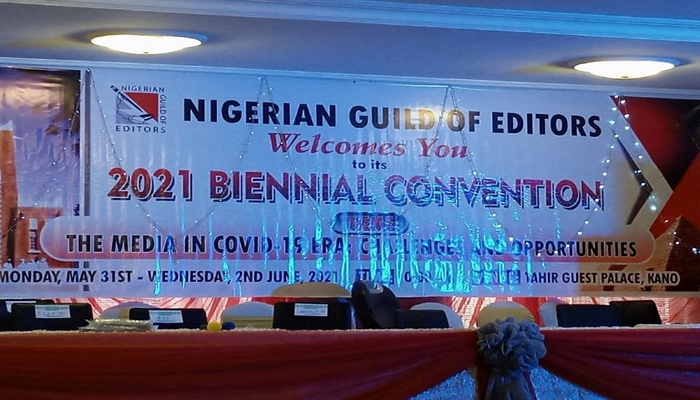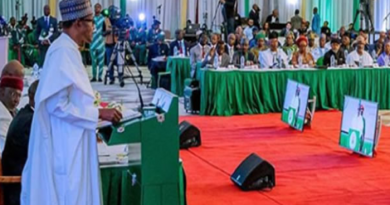Don advocates new media funding model
Prof. Umaru Pate, a media and communications expery, has advocated for the introduction of new media funding models to address challenges of media organisations.
Pate made the call on Monday in Kano in a paper presentation on at the 2021 Biennial Convention of the Nigerian Guild of Editors (NGE).
Pate, who is also the Vice Chancellor, Federal University Kashere, Gombe State, spoke on: ‘The Media in COVID -19 Era: Challenges and Opportunities”.
According to him, the new media funding models are required because a single source of revenue is not no longer sustainable.
“The best way to be independent is to be profitable. Diversification is key. Invest in investigative journalism facilities – breaking news, technology and expanding reach.
“The COVID -19 crisis will impact on people’s behaviour, businesses, and companies; adjust your editorial and marketing strategies to respond to scenarios as part of sensing context capability.
“As the financial health of traditional media (excluding streaming and social media) is under threat, develop restructuring plans and reduce non-essential costs.
“Don’t get trapped in old ways, outdated technologies and neglect of the youth. If you do, they win, you lose,” he advised.
According to Pate, the COVID-19 pandemic has profoundly and globally affected every human endeavour by rendering and gradually leaving societies tensed, challenged and even insecured.
He added that for the media sector in Nigeria and, indeed, globally, the COVID-19 era had hit it hard, devastating and existentially threatening.
“Even before the pandemic in late 2019, the media sector in Nigeria has been struggling against challenges like fake news which undermines public confidence in the media.
“Decline in advertising, staff layoffs, welfare and professional safety issues, rise of digital platforms (Google) that dominate access (gateway).
“COVID-19 has ruthlessly compounded the predicaments of the media in Nigeria,” Pate said.
The expert explained that the Coronavirus crisis had led to loss in advertising, sales revenues and other financial earnings for the media, thus undermining their business model.
“Because of the need for credible information and entertainment during the lockdown and confinement, people increased time for TV viewing, radio listening and reading of newspapers.
“This resulted in renewed interest and added pressure on the media without a corresponding increase in media revenue.
“At a time when people needed critical and credible information, most media houses were hampered by lack of resources to deliver optimally.
“However, the media got the status of frontline workers which speaks to an understanding that their value as bearers of important and verifiable information was recognised,” he said.
He added that this was part of the ways of stemming the public health crisis.
Reviewing the paper, Malam Sani Suleiman, the Director, News and Current Affairs, FRCN, noted the contradictions created by fake news which caused misinformation and disinformation about COVID-19.
Suleiman therefore advised media practitioners to develop content on the pandemic for the industry to strive.
He also urged the delegates to bridge the communication gaps posed by COVID-19.
Besides, Suleiman underscored the need for training and retraining of journalists and other frontline workers to build their capacities.




